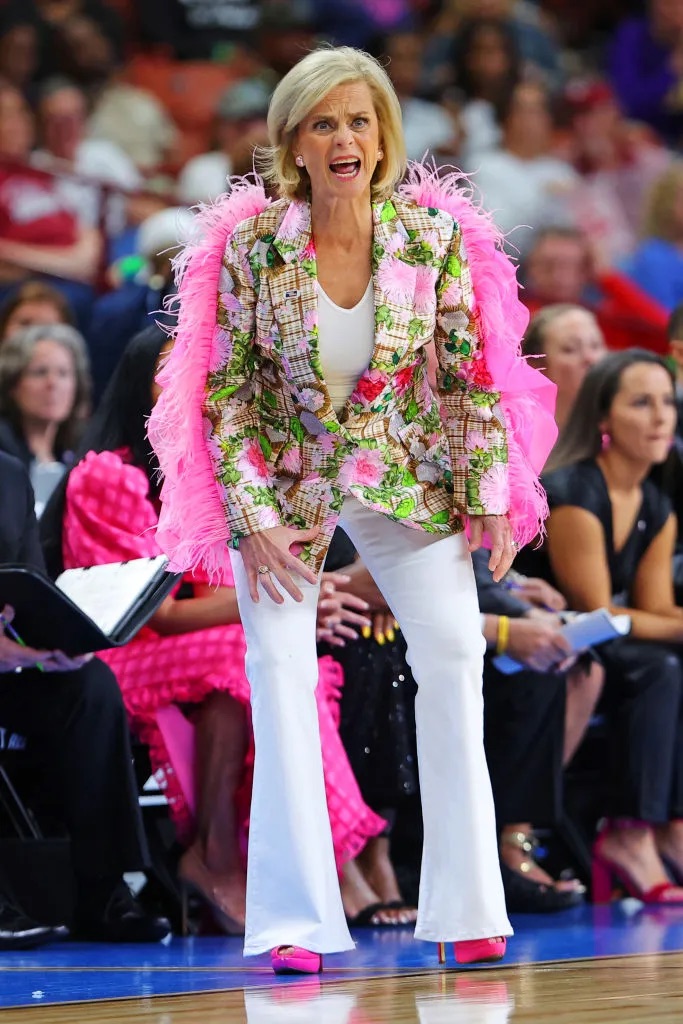Following the 2024 March Madness tournament, Louisiana State University’s Women’s Basketball Head Coach Kim Mulkey came under fire for alleged homophobia, comments dismissing sexual assault, and cruel treatment of players. Beyond Mulkey’s circumstances, however, lies a deeper issue: the influence of commercialism in collegiate sports, which guides which coaches are punished and which are allowed to act unprofessional with impunity.
Mulkey played basketball for Louisiana Tech University, winning two national championships as a point guard. Following her time on the court, Mulkey transitioned to coaching, quickly rising through the ranks. In 2000, Mulkey became Head Coach of Women’s Basketball at Baylor University, leading the Lady Bears to three NCAA championships in 2005, 2012, and 2019. Since leaving Baylor in 2021, Mulkey has coached the LSU Tigers Women’s Basketball Team, bringing home the 2023 NCAA championship and an impressive record of 91-13 in 2024.
A recent article by The Washington Post exposed a swirl of controversies surrounding Mulkey, including alleged homophobia towards players Britney Griner and Kelli Griffin. Griffin claimed that Mulkey criticized her for “being dressed like a boy,” telling Griffen that “a lady wears a dress.” Another article reports that Mulkey told other players to keep their sexuality “behind closed doors.”
Mulkey drew criticism in 2022 for what many saw as insufficient support for Brittney Griner during her incarceration in Russia. Despite the fact that Griner was arguably her most successful player, Mulkey failed to make a public comment of support. Many chalked Mulkey’s silence up to the young basketball star’s publicly known sexual orientation.
Additionally, Mulkey came under fire in 2017 after going on record for comments some felt dismissed the sexual assault scandal at Baylor, telling reporters to “find another story to write” because “the problems that we have at Baylor are no different than the problems at any other school in America.”
Mulkey’s situation mirrors that of many other outspoken and controversial coaches in women’s sports. For instance, MaChelle Joseph, former head oach for the Georgia Tech Women’s Basketball team, who led her team to historical victories, becoming the winningest coach in Georgia Tech Women’s Basketball history, similarly came under fire for alleged harassment of players and was subsequently fired.
Additionally, the University of North Carolina’s former Women’s Basketball Head Coach Sylvia Hatchell, who won Naismith College Coach of the Year twice and led her team to a national championship was ultimately, she was put on administrative leave for allegedly making racially insensitive comments to players.
Despite the recent media storm, Mulkey has never been formally disciplined by LSU. If Mulkey were to be let go from her position, LSU would take a significant financial hit, which would be more damaging to the university than any scandal. For the university, Mulkey’s ability to attract elite players and secure name, image, and likeness deals generates substantial revenue through increased ticket sales, merchandise purchases, and sponsorships. As a result, LSU is less inclined to hold her accountable for her actions, fearing the financial repercussions of her absence.
This leniency is limited to an exclusive tier of coaches who provide substantial return on investment for their schools. Although the aforementioned fired coaches have been extremely successful, none of their games have ever averaged 12.3 million viewers and they have never drawn stars with $1.7 million in NIL deals, as Mulkey has.
Regardless of whether the accusations against Mulkey are substantiated, the discrepancy between Mulkey and other coaches in comparable situations exposes the problematic influence of commercialism in the world of college sports.





